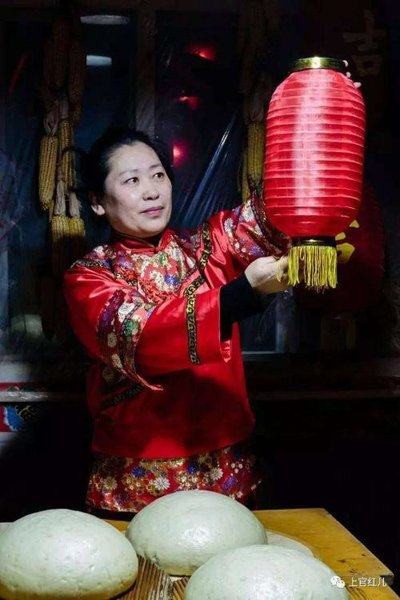
Leng Juzhen decorates the house with traditional Chinese lantern in the village of Xiaonanhe, northeast China's Heilongjiang Province.
Leng Juzhen, a grassroots official, has utilized rich local natural and cultural resources to develop rural tourism in the Xiaonanhe Village, in northeast China's Heilongjiang Province, and has helped people shake off poverty over the past three years.
Leng was assigned to work in the village as the first secretary at the end of 2015. She noticed the poverty but also the beauty there.
There are over 200 households living in the village, most of whom made a living planting corn in barren sentry fields.
She has established a rural tourism association, built traditional household workshops and folk custom projects consecutively in the village. The poverty-stricken village started to open its gates to welcome guests from around the world.
High mountains, clear mountain springs and rich customs and human resources, such as traditional Chinese houses from the 1930s, are all visible here.
Leng, as a shutterbug, regularly posted beautiful pictures of these features on a WeChat group of photographers, attracting many people. Some claimed that they would like to visit the village.
An idea that made use of these resources to develop the village occurred to her at that time. Initially, some villagers didn't recognize her idea, but Leng convinced them by going door-to-door, while also helping them whenever they needed.
People therefore gradually came round to her idea and planned to support her.
She planted sunflowers at the base of the mountain to attract tourists, because she thought they were both beautiful and useful. After harvest, the seeds could be used for their oil.
The several hundred mu (nearly 67 hectares) of sunflowers attracted many photographers to take photos after she posted her own pictures last summer.
During her two years working in the village, Xiaonanhe has received over 26,000 tourists from home and abroad, creating a total revenue of 1.6 million yuan.
Moreover, she has created agricultural products using the village’s resources, such as sunflower seed oil and chili sauce.
With her help, villagers took part in provincial-level agricultural trade fairs and set up shops in the central street of Harbin, capital city of Heilongjiang.
When her tenure came to an end, villagers were all worried and afraid of her upcoming departure. However, Leng told them that she would not leave and would continue to lead them to prosperity and a better life.

